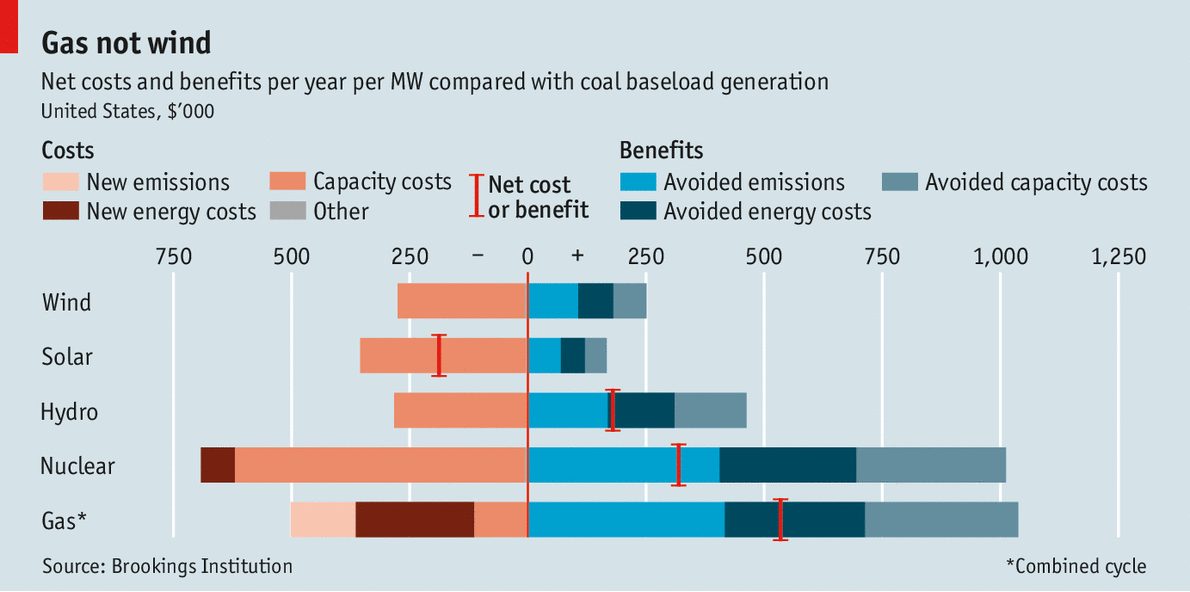There was an interesting article in The Economist this week about coal alternatives (Sun, Wind and Drain) . Basically, the conclusion of a study put out by The Brookings Institution is that reducing CO2 emissions from coal by encouraging the growth of electricity production using solar and wind power has a net cost, not a net benefit. The major glitch in the solar/wind model is that the production can't be counted on to be available, so backup baseline generation is required. When you add those costs in (and that's entirely realistic), then they are incredibly expensive ways to reduce greenhouse emissions.
The discussion and analysis is related to other ongoing threads here on "externalized costs" and "solar power producing paving materials". The Brookings study assumed various amounts for the externalized costs of CO2 production.

Note: The "Net Cost or Benefit" marker for wind power seems to have fallen off the online version of the graph (above). In the print version of the magazine, it was at about - 20 (i.e. -$20,000 per megawatt per year in net cost, compared to coal).
From the piece:
Anyway, something to chew on. . .
The discussion and analysis is related to other ongoing threads here on "externalized costs" and "solar power producing paving materials". The Brookings study assumed various amounts for the externalized costs of CO2 production.

Note: The "Net Cost or Benefit" marker for wind power seems to have fallen off the online version of the graph (above). In the print version of the magazine, it was at about - 20 (i.e. -$20,000 per megawatt per year in net cost, compared to coal).
From the piece:
Obviously, the calculations and the decisions about the value of various alternative energy sources depend on the price allotted to the external cost of CO2, but also much more to other "costs" (e.g. cost in lives and environmental damage from coal mining, flooding river basins for hydro, etc). And, ultimately, what is the cost in human suffering and health of increasing the cost of electricity at all (esp in the developing world).If all the costs and benefits are totted up using Mr Frank’s calculation, solar power is by far the most expensive way of reducing carbon emissions. It costs $189,000 to replace 1MW per year of power from coal. Wind is the next most expensive. Hydropower provides a modest net benefit. But the most cost-effective zero-emission technology is nuclear power. The pattern is similar if 1MW of gas-fired capacity is displaced instead of coal. And all this assumes a carbon price of $50 a tonne. Using actual carbon prices (below $10 in Europe) makes solar and wind look even worse. The carbon price would have to rise to $185 a tonne before solar power shows a net benefit.
Anyway, something to chew on. . .
Last edited:


